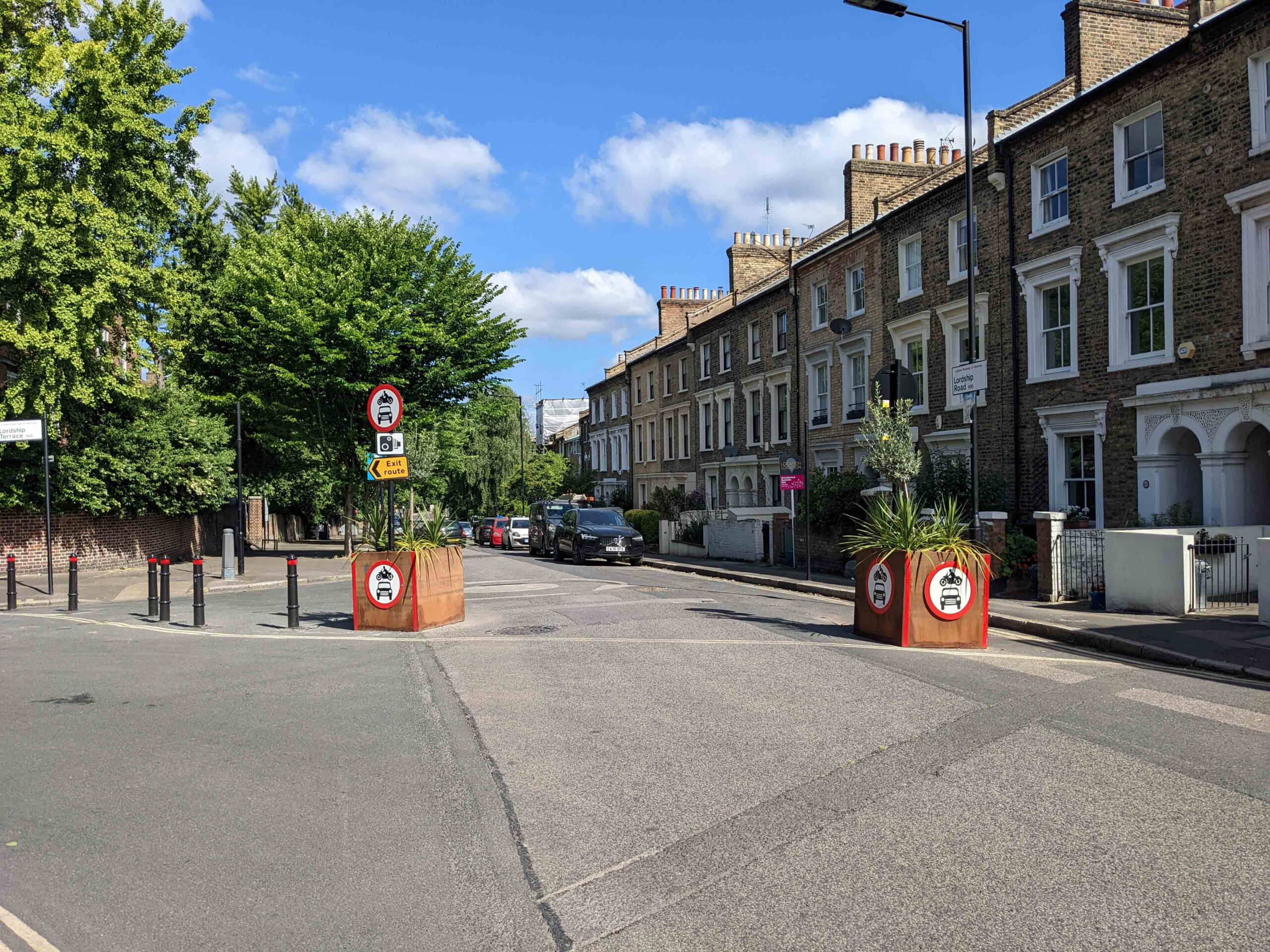Low Traffic Neighbourhoods in London: A mixed-methods study of benefits, harms and experiences
Ersilia Verlinghieri, Rachel Aldred, Patrice Ajai-Ajagbe, Jamie Furlong, and Harrie Larrington-Spencer
Funded by National Institute for Health and Care Research (NIHR)

Modal filter for a Low Traffic Neighbourhood (LTN) in Stoke Newington, Hackney
Low traffic neighbourhoods (LTNs) are transport interventions that limit through-traffic motor vehicle access in a set of residential streets. Their aim is to make walking, wheeling and cycling safer and more comfortable, and make driving less convenient.
There is some promising evidence of the benefits of LTNs, including decreased car ownership and use, increased active travel, and a reduction in street crime and road traffic injuries. However, there is also concern about adverse impacts, for instance on disabled people who need to use cars and whose journeys will be longer, or for residents on boundary roads which may experience the negative consequences of diverted motor traffic.
Funded by the National Institute of Health and Care Research, the ‘Low Traffic Neighbourhoods in London’ project uses both quantitative and qualitative methods to examine the benefits, harms and experiences of new LTN schemes and inform the future of similar transport interventions.
One key component of this work is ‘go-along’ interviews with residents who live in or nearby an LTN. During the go-along, residents are asked to guide researchers around their local area; they discuss their daily experiences of living within or near the low traffic neighbourhoods and how the scheme impacts them and their journeys, both positively and negatively. The method allows researchers to better understand the inclusivity of the schemes, such as the experiences of disabled people and older residents who have diverse travel needs and might use roads differently. At the same time, go along interviews enable researchers to highlight potential positive or negative impacts not easily captured by quantitative data or traditional interviews, including changes in perceptions of safety of the local environment or changes to the way public space is used.


